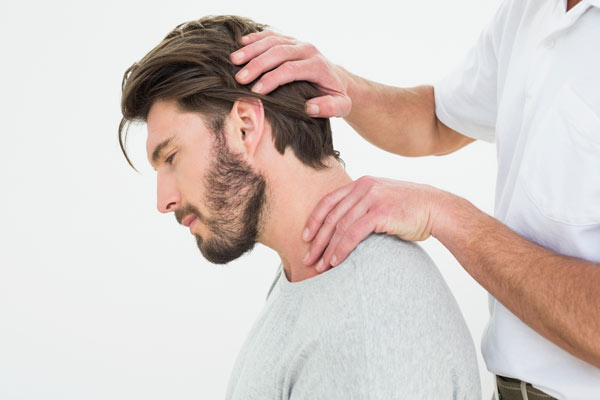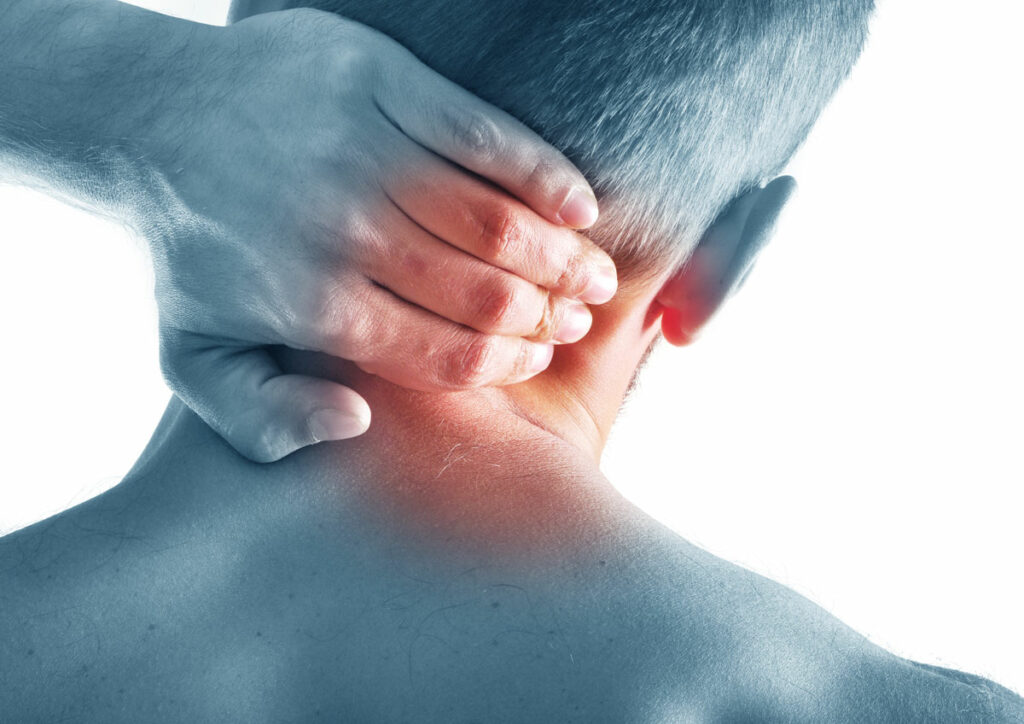When to Seek an Auto Accident Doctor for Neck Pain After a Car Accident

When you have been injured in an auto accident, your primary concern will be getting medical treatment as quickly as possible. There are obvious auto accident injuries that are life-threatening like compound fractures that require an immediate trip to the emergency room for medical treatment.
On the other hand, there are times when it is important to seek out a doctor who specializes in issues that are not life-threatening but do reduce your quality of life and your ability to meet life’s demands—specifically, chronic neck pain following an auto accident. Although this type of injury may not seem serious at first, left untreated it could lead to long-term issues that require more extensive treatment down the road.
The Symptoms of Auto Accident Injuries Are Often Latent
This means they may not manifest until hours or even days following the car accident.
This is why it’s important to seek medical attention immediately following an accident, even if you don’t notice anything immediately wrong—the sooner injuries can be diagnosed, the more effective treatment will be.
In Florida, you are required to get medical treatment within 14 days of an auto accident in order to qualify for all PIP medical benefits.
Symptoms of Neck Injuries

Whiplash and concussion injuries of the neck can result in neck pain, shoulder pain, arm pain, and headaches. Even broken bones of the neck may not be noticeable immediately following an accident—they could take hours or even days to manifest as recognizable symptoms.
One thing that many people notice right after a car accident is ringing in the ears due to impact on the head and rapid acceleration/deceleration of the head and neck. Even though this condition may resolve itself over time, it still warrants medical attention. Like concussions of the brain, ringing in the ears (tinnitus) is typically a symptom of some other problem (in this case, injury).
Common Auto Accident Injuries
Whiplash
Neck pain resulting from car accidents is one of the most common injuries among auto accident injury victims in Florida and all across America. Whiplash, the term commonly used to describe neck pain after an auto accident, occurs when your body experiences quick acceleration or deceleration of the cervical spine—your spinal column that includes the seven cervical vertebrae that support your head.
Auto accident injuries like whiplash can cause symptoms to present themselves suddenly, or they may take time to manifest as recognizable symptoms.
Symptoms of whiplash neck injury include headache, dizziness, ringing in the ears (tinnitus), lightheadedness or vertigo, muscle spasms in the face and/or back, and reduced range of motion in the neck area including difficulty looking over shoulder. Some peripheral symptoms of whiplash can include depression, moodiness/irritability, and insomnia.
Concussions
A concussion may also cause a great deal of pain in the head and neck area, which can worsen if treatment is delayed for too long.
Symptoms of a concussion include headache, dizziness, feeling “foggy”, slowed reaction times, and loss of memory/concentration/focus.
If you have any of the symptoms above after a car accident, it’s a good idea to seek medical attention.
Soft Tissue Damage
In many cases, an auto accident can lead to soft tissue damage in the neck. This is a common problem in people with pre-existing medical conditions or who have been in more than one car accident.
Soft tissue injuries typically result from high-impact accidents and aren’t always visible on an x-ray or scan. Luckily, doctors can treat soft tissue damage by prescribing anti-inflammatory medications, cortisone injections into the injured area, physical therapy exercises, manual massage, ultrasound treatments that use heat and massage, and acupuncture.
Slipped Disc / Herniated Disc Syndrome
Neck pain could also be the result of a herniated disc, which is an injury to one of the discs between the vertebrae. These are jelly-like layers of padding between the vertebrae which act as cushions and allow for mobility and range of motion.
Herniated discs can occur due to direct impact or sudden pressure placed on them because of an accident. If too much pressure is exerted on these discs for too long, they can “slip”—a term for when a portion of the inner jelly-like layer is forced out through a tear in the hard outer layer, which then presses up against nerves exiting through the spinal cord.
This pressure causes neck pain that’s usually followed by arm pain because nerves connected to the spinal cord run down both arms (although arm pain is typically located in just one arm). A neck injury like this don’t always show up on x-rays either, but they can still be detected with MRIs.
Painkillers and muscle relaxants may help mask the symptoms but they won’t solve the underlying condition. Instead, a chiropractic adjustment can reverse the damage of a slipped disc or, at the very least, take some pressure off of the pinched nerve until the body eventually repairs itself. (Without medical treatment, slipped discs typically go away on their own, although this can take a lot of time.)
Facet Joint Injuries
Even if your x-rays don’t show any problems, you may still have facet joint injuries. These are joints in the cervical spine that help with head and neck stabilization and motion. The most common cause of these injuries is a hyperaggressive forward head carriage combined with poor posture habits, but auto accidents can cause them as well.
If your doctor suspects that you have suffered an injury to the discs or facet joints in your neck, they will likely prescribe physiotherapy exercises. Sometimes they will also recommend traction which has been shown to be effective at reducing pain caused by slipped discs.
What Can Chiropractors Do For Neck Pain After An Auto Accident Injury?

A full physical exam should be conducted on all patients with neck pain following a car accident injury. This will help establish an accurate diagnosis that can then determine the appropriate treatment plan for each individual case. Your doctor can provide feedback on treatment options if your injury is one that typically takes time to heal as well as refer you to specialized care if necessary such as massage therapy.
Proper care for chronic neck pain post-car accident typically involves a combination of chiropractic treatment and physical therapy.
A doctor’s care is generally recommended for those who experience severe neck pain, those with limited range of motion and those with difficulty walking and standing. However, it’s important to seek a medical evaluation from a chiropractic doctor immediately after an accident so that injuries can either be ruled out or detected early, in which case treatment options will be more effective.
Chiropractic doctors who treat auto accident injuries focus on the diagnosis and treatment of soft tissue damage as well as skeletal misalignments.
Proper alignment is necessary for your spine to function normally, which affects posture, balance and coordination. Any disruption in this process can result in neck pain from an accident.
In addition to spinal manipulations, chiropractors also use a variety of therapies, including:
- Physical Therapy / Physiotherapy
- EMS Treatment
- PNF Stretching
- Intersegmental Traction
- Ultrasound Treatment
- Core Strengthening Exercises
Chiropractors can work with you to establish an individualized treatment plan that helps your injuries in the long-term. There’s no one-size-fits-all treatment for car accident injuries and chronic neck pain.
Make no mistake, car accident injuries like whiplash and concussions that result in chronic pain can be debilitating. You need to find relief as soon as possible so that you can get back to living life normally.

